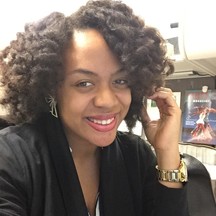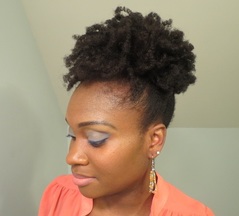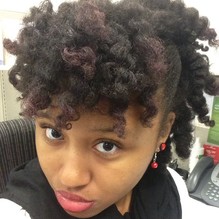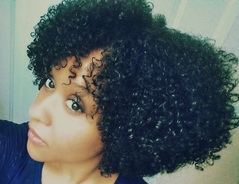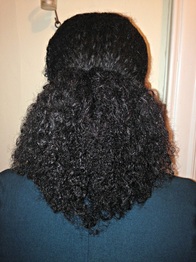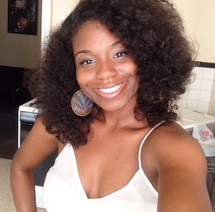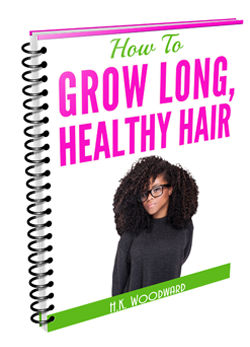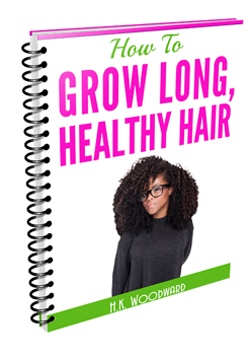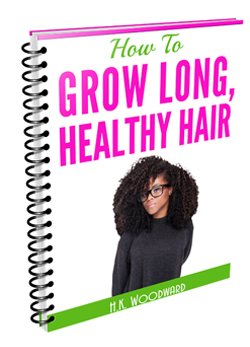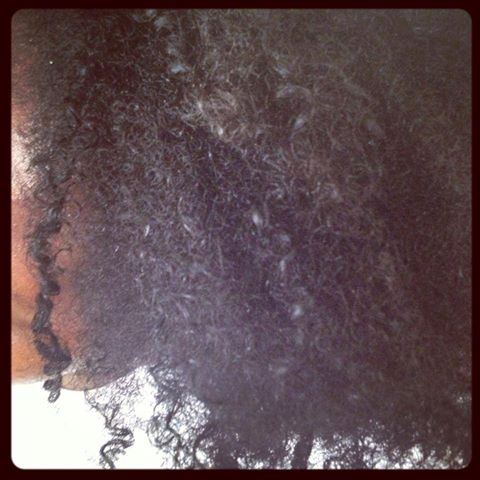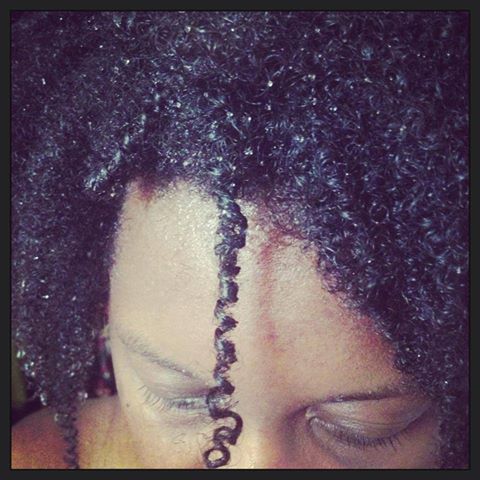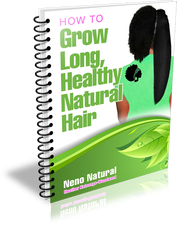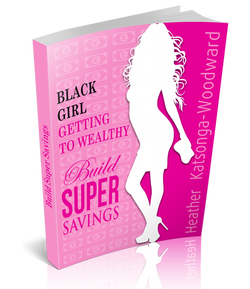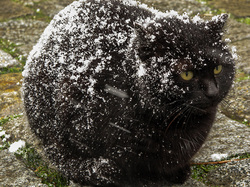
The cells of the scalp are constantly dividing. You can't normally see this cellular division with the naked eye; however, when the moisture content of the scalp falls benath 10% the process becomes accelerated resulting in dandruff.
I had no idea there were so many potential causes of dandruff! The good news is that poor hygiene is not one of them. Dandruff can be caused by one or more of the following: Dehydration Skin is hydrated from the inside out. If you needed added incentive to drink more water, there you have it. Diet Zinc, B vitamins and certain fatty acids are needed to balance the skin. Dry skin increases the chance of getting dandruff. This totally makes sense because I've also seen people with dry facial skin display flaking. Yeast sensitivity Apparently those with yeast sensitivity find a reduction in the amount of dandruff during summer months. The reasons for this are not clear: either UVA rays from the sun counteract with the yeast or a colder climate leads to drier skin there by making dandruff more likely in winter or even a mixture of the two. Malassezia is a fungus though to cause dandruff. This fungus is present in on both healthy skin and skin free of dandruff but those with dandruff have 1.5 to 2 times the normal level. Skin conditions, e.g. eczema, Seborrheic dermatitis and psoriasis cause dandruff. Parkinson's disease causes dandruff but the reasons for this are not understood. A reaction to a product One of your hair products may have caused skin inflammation leading to itchiness and increased scaling. Washing your hair too often can irritate the scalp and cause dandruff too. Not combing your hair enough! I too was surprised by this factor. The risk that your dandruff is caused by this is only slight. It occurs because combing (and brushing) help to clear shedding of skin. I wouldn't give too much weight to this cause. Stress! - also appears to cause dandruff so chill out ;) 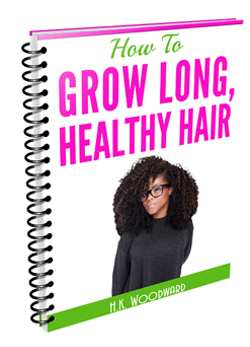
Get your FREE ebook on How To Grow Long, Healthy Natural Kinky or Curly Hair. Ref. NHS, Medical News Today,
If you, like me, have ever taken vitamin supplements to help with healthy hair growth you will probably have already heard about the “B-vitamins.” These are a group of essential nutrients which are well renowned for health in general, but hair in particular. Each of the 8 vitamins have a number after the B.
Some of the vitamins are better known by their other name, like folic acid (B9), whereas others are better known by the number, e.g. vitamin B12. They are:
(If anyone knows what became of B4, B8, B10 or B11 then leave a comment below!) These vitamins play a crucial role in the production and maintenance of proteins in the body. Since your hair is a made from a protein (keratin) these vitamins are vital for healthy hair. I already wrote a blog about the best foods for natural hair growth and strength but to summarize you get many of the B vitamins in eggs, milk, rice and whole grains as well as poultry meat and offal such as kidney, liver or tripe. The main hair benefits of B vitamins include:
One reason for their role in hair growth is that folic acid and vitamin B12 are important for healthy red blood cells which carry oxygen around the body and help everything grow efficiently. Dandruff and dry scalp have been linked to B vitamin deficiency and certain people with vitamin B7 deficiency get severe dermatitis (skin inflammation) and hair loss. So if you have these issues, take a closer look at your diet, and if unsure seek help from a dietician or specialist nutritional expert. Eggs & milk for breakfast anyone? Yes sirree. Bring on those whole oats too! 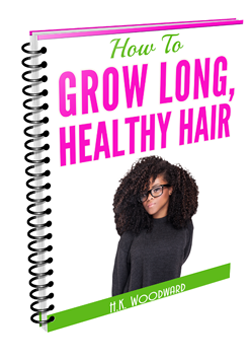
Get your FREE ebook on How To Grow Long, Healthy Natural Black Hair. 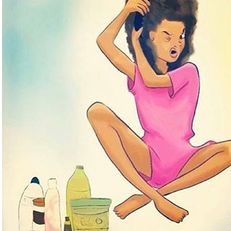
Even when you know your hair quite well sales people that appear to know their stuff will feed on your fears.
I went to a rebranding event by ORS (formerly Organic Root Stimulator). At the event they had a woman with a gadget that looks at your scalp so that she can analyze your hair and draw conclusions about its state. She said:
Trust me, I felt awful! She tried to find out how I take care of my hair. "Are you a naturalista?" she asked? I was like, "Umm, I have natural hair, so I guess so?" sheepishly. "No, having natural hair doesn't make you a naturalista. A naturalista is someone who makes all their own products and tries to source all organic and natural stuff." I don't agree with that definition but I didn't argue. I told her I like to use stuff that won't damage my hair in the long run but I don't look for terms like "organic" and "natural" because they mean nothing; sales people just throw those terms around to close sales. Anyhow, long story short, in that moment I would have bought anything she was selling. I was so freaked out by what she had said but...she didn't have any stock. When we left that event I started looking up trichologists in my area but by the next morning I had calmed down and realized it was nothing more than sales spiel. I have never exfoliated my scalp in my life, ever, so I don't think it's essential. I massage my scalp regularly and wash my hair and scalp weekly - I don't get dandruff and my scalp is not dry. In this video I exfoliate my scalp for the first time using my own methods plus I have some random chatter with Harry, my husband. It's early Sunday morning and we're just chilling. Enjoy. 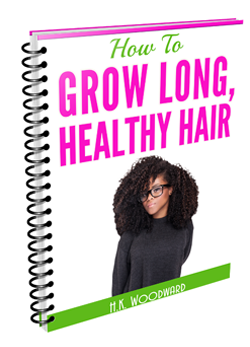
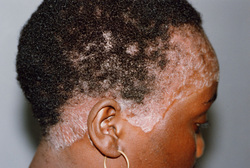
I get quite a few emails from people with a scalp problem seeking my input on products etc. Whilst I am not a doctor I have discovered that if you have scalp psoriasis the following carrier oils and essential oils can help to temper the problem.
Keep the lists in mind when you're buying commercial products or whipping up your own recipes using my DIY Hair Product Academy.
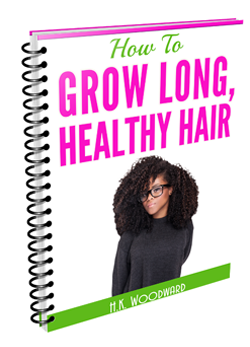
Get your FREE ebook on How To Grow Long, Healthy Natural Kinky or Curly Hair. You might also like: Ref: aromantic.co.uk, Carrier Oils by Len Price 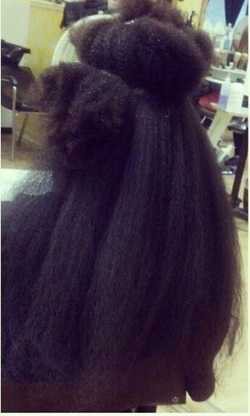
According to The Science of Black Hair, "The scalp is the birth place of hair!"
If you want to create an optimal environment for hair growth you want your scalp to be: 1. Clean - wash it. Every 7 to 10 days wash your hair and scalp. This is one of the reasons I don't enjoy washing my hair with twists in it: I can't get to the scalp as freely. 2. Unclogged by petrolatums - don't use them Vaseline, Blue Magic, Sulfur 8 etc don't moisturise, they clog. 3. Hydrated - drink lots of water Scalp hydration works its way inside out. Drinking water is vital for scalp health, spritzing water is important for hair's moisture. 4. Dandruff free - drink lots of water The cells of the scalp are constantly dividing. You can't normally see this cellular division with the naked eye; however, when the moisture content of the scalp falls below 10% the process becomes accelerated resulting in dandruff! If you needed added incentive to drink more water, there you have it. 5. Not dry - oil it with Neno Natural's Hair Growth Stimulator or another high quality vegetable oil Whilst the scalp does produce its own oil, sebum, sometimes it's not enough to keep the scalp and hair moisturised. Jojoba oil has a structure very similar to sebum so it's one of my oils of choice for stimulating the scalp. Jojoba forms 50% of Neno Natural's Hair Growth Stimulator. 6. Well stimulated - massage it often Being a thin layer of flesh, the scalp gets less blood circulating to it than other parts of the body. You can help blood flow to the scalp with regular, gentle massages using a vegetable oil. If there is one thing that has been consistent in my natural hair routine from the get go it's been massaging my scalp and recognising its health as important to my hair growth.
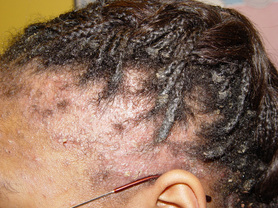
Please note that I am not a doctor (my husband is) but all the below information is from credible sources (listed at the end of this blog).
What is seborrhoeic dermatitis? A rash or inflammation of skin that usually comes up in areas rich in sebaceous glands e.g. the face, scalp and centre of the chest. How common is it? Pretty common: 3-5% of people globally are affected by it. Is it more prone in certain age groups? Yes: young adults, the elderly and infants What causes it? This isn't fully understood. What is know is that a yeast called Malassezia (present in skin) plays a part in its development. Other possible causes include:
What does NOT cause it?
What are the symptoms of scalp seborrhoeic dermatitis?
What does seborrhoeic dermatitis look like on the scalp? Bumpy, red (if you're light skinned) with greasy-looking white or yellowish scales. The rash may weep. How is it diagnosed? Your doctor should be able to tell, however, it can be difficult for doctors to distinguish seborrhoeic dermatitis from psoriasis. Can it be cured? No, it can only be managed. This means you might have to take a treatment continuously or on and off for many months or years. How is scalp seborrhoeic dermatitis treated? Your doctor might prescribe:
To avoid repetition, please read the second half of the blog on psoriasis for a few more dos and donts unique to those with natural hair. You might also like: Managing scalp psoriasis and your natural black hair 13 Top Tips for Keeping Natural Black Hair Moisturised - No More Dry Hair! Solutions for a burnt scalp e.g. due to hot water or direct application of essential oils
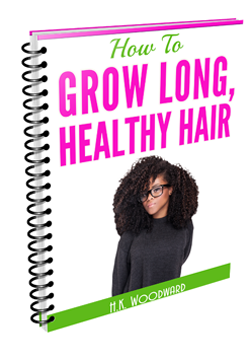
Get your FREE ebook on How To Grow Long, Healthy Natural Kinky or Curly Hair.
References: The British Association of Dermatologists NHS Clinical Knowledge Summary I have a mild preference for British over US medical sources because the UK system is not-for-profit so the sources won't have a money-making motive in them. Solutions for a burnt scalp e.g. due to hot water or direct application of essential oils28/11/2012
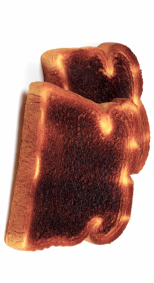
I've had a couple of people contact me after burning their scalp because their water was too hot or because their skin made contact with undiluted essential oils e.g. peppermint oil.
Types of burn:
If you have first degree burns, these are some quick solutions:
If you have second degree burn or worse, see a doctor. If your scalp is still sore after 3 or 4 days also see a doctor. Normally, after the initial shock your scalp should cool down and start healing quite rapidly after about 24-48 hours. What not to do!
If your hair has been yanked out due to burns, don't freak out, in many cases it will grow back. References: How can I treat minor burns? (wiseGEEK) How do I deal with minor burns? (NHS) 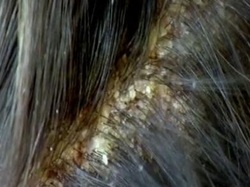
What is scalp psoriasis?
Although a healthy scalp appears smooth to the eye, flakes of keratinized cells are continually forming on the scalp's surface. We can't see this flaking process until it is thrown out of balance resulting in dandruff. With psoriasis this flaking process is multiplied many times over. Skin cells are produced and die within 5 to 6 days instead of the normal 28-day cycle. These dead skin cells build up on your skin in dry, thick, scaly patches. What causes scalp psoriasis? The exact cause is not known but we do know that the body's immune system plays a role. The immune system protects the body against infection. If you have psoriasis, special white blood cells (called T-cells) start to attack healthy skin cells by mistake. This causes the body to produce more skin cells and T-cells to replace those lost. Common triggers Psoriasis worsens or can start as a result of one of more of the following triggers:
What can you do to control scalp psoriasis? 1. See a doctor or a trichologist They can prescribe the appropriate lotions and creams that help to soften the skin cells so that they wash off easily. The active ingredients in the lotion will typically be salicylic acid, lactic acid or phenol; this is applied to the scalp to soften the psoriasis plaques which can then be shampooed out more easily. The doctor can also recommend medicines or a round of treatment. If you're in the US you can locate a doctor via psoriasis.org, if you're in the UK, just see your NHS GP to start off with. Here is very useful information on treatments that work from the British Medical Journal Group:
2. Ideally do not use celebrity and TV or internet doctors' advice.
Your circumstances are unique to you and what works for one person may not necessarily work for you. Following internet advice could lead to lots of trial and error that only makes things worse. It's not worth the risk. That said, check out this girl with scalp psoriasis on Embarrassing Bodies (a UK TV show where people showcase medical problems that have been ruling their lives). I chose to show you this because the show is run by proper doctors and they're not trying to push products. These two episodes show the great results you can achieve after treatment.
3. Don't aggravate the psoriasis:
Unique issues you may face with natural hair 1. If you're being "forced" to go natural because of the scalp psoriasis you'll also have to learn how to manage your new hair. In addition to nenonatural.com there are many other online tutorials by USA hair bloggers, UK hair bloggers and beyond. 2. Combing flakes out will be harder because of the curls so you'll need more patience than someone with, say, type 1 hair, especially if your hair is long. You might also like: 13 Top Tips for Keeping Natural Black Hair Moisturised - No More Dry Hair! Managing natural hair and scalp seborrhoeic dermatitis References: Psoriasis Treatments: Now and in the Future (webmd) Psoriasis.org Scalp Psoriasis - Channel 4, Embarrasing Bodies |
I now blog about wealth creation - so if you have any money questions meet me there, you can do all sorts of cool things like leave me a voicemail.
By Heather Katsonga-Woodward
I was a natural hair blogger and mixtress living between London & Chicago from 2012 to 2017. I always thought I was 4C but some say 4B; images below - you decide! Heather xx Categories
All
Archives
November 2016
|
||||||||||||||||||||||||||||

